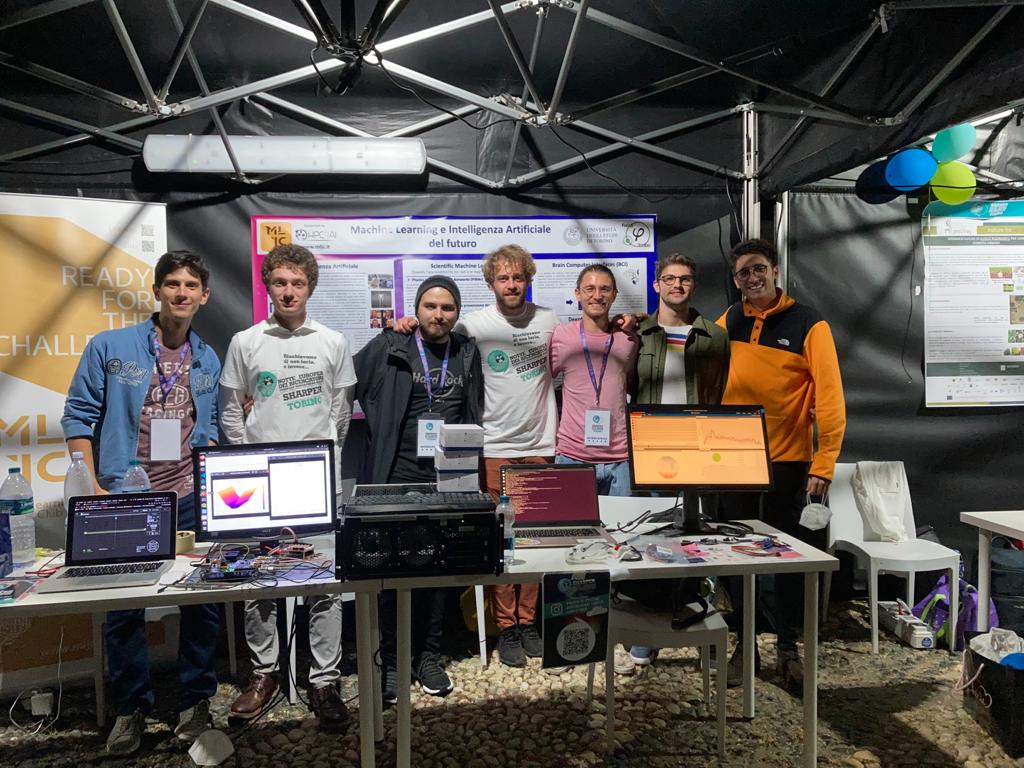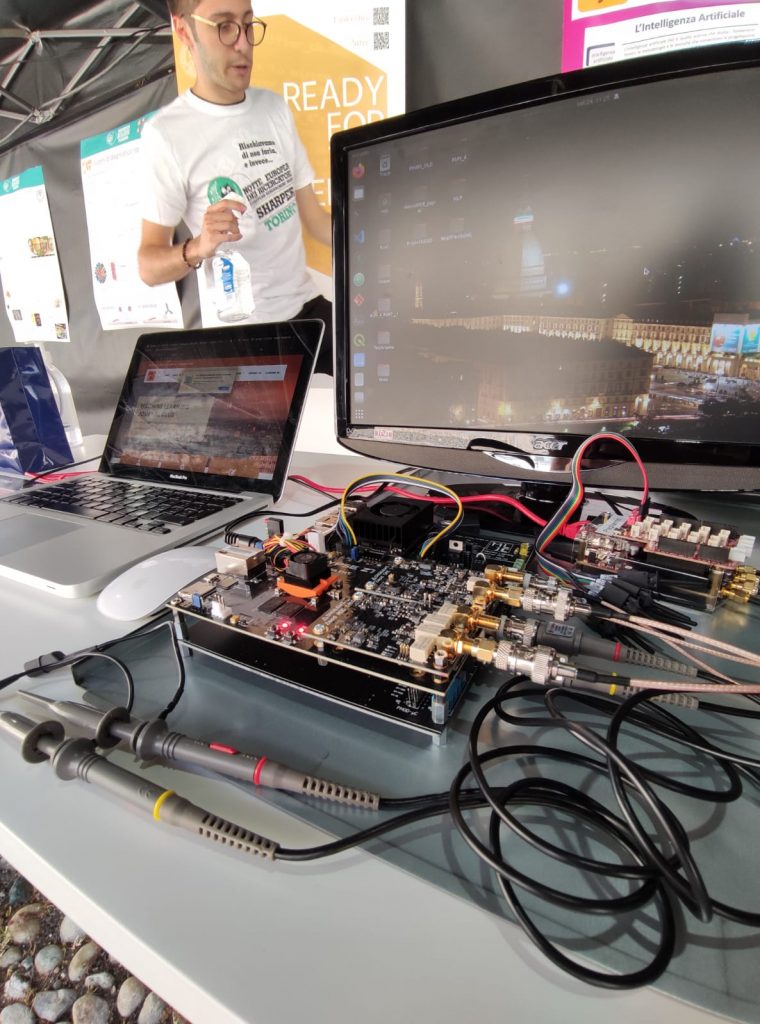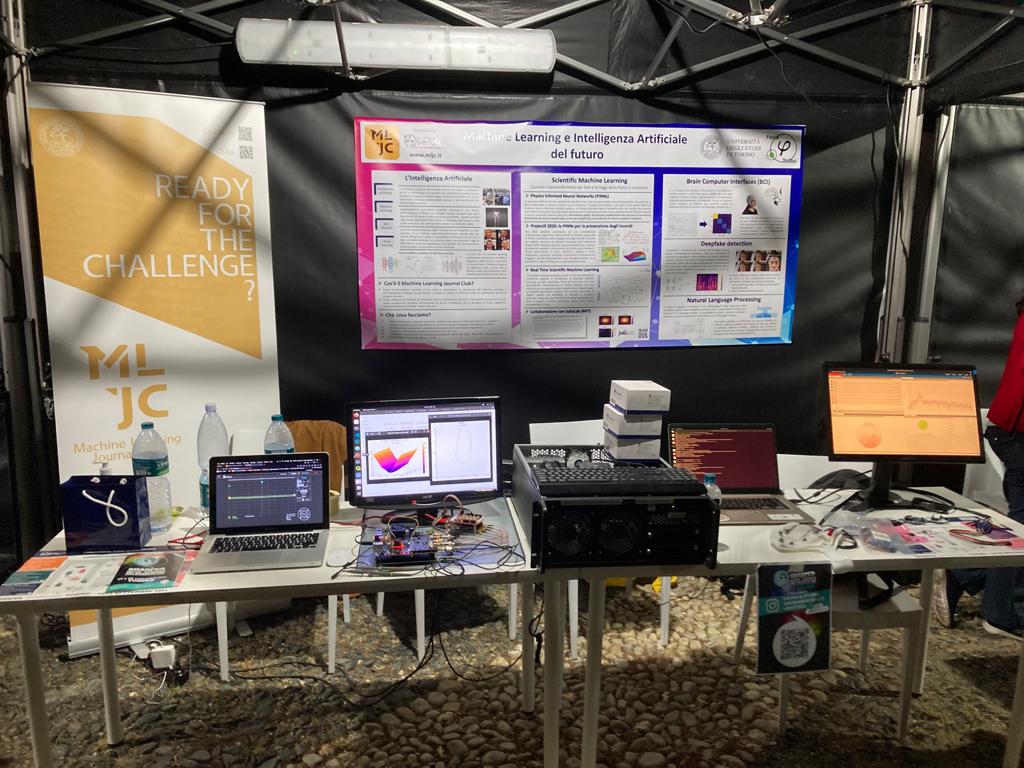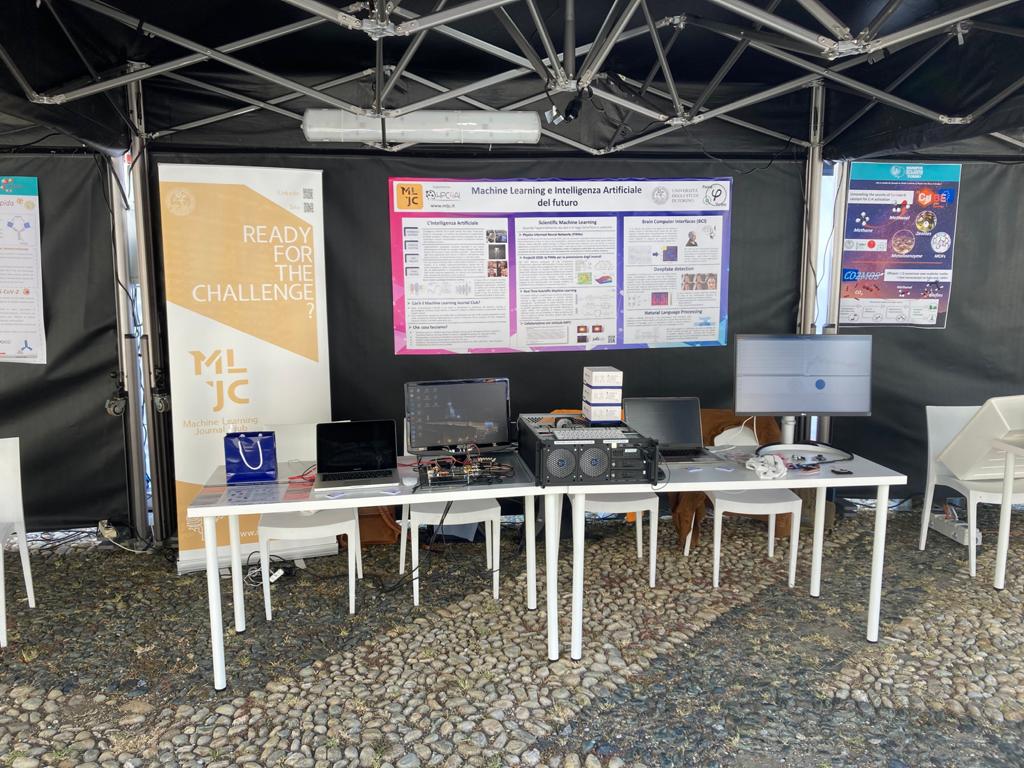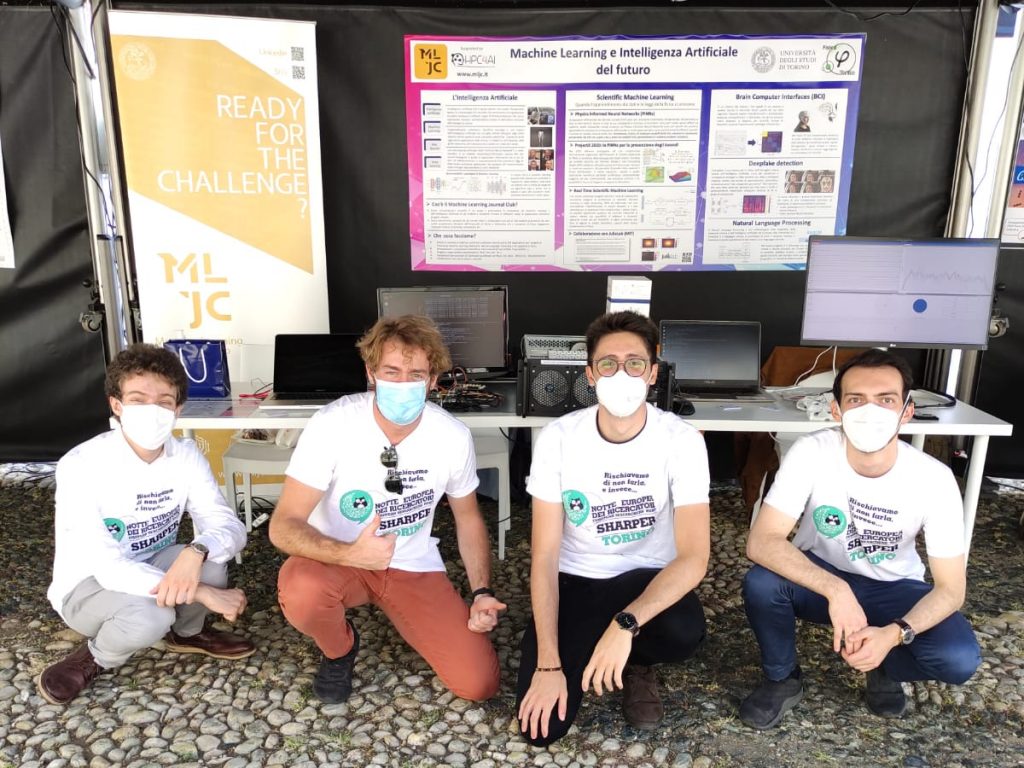

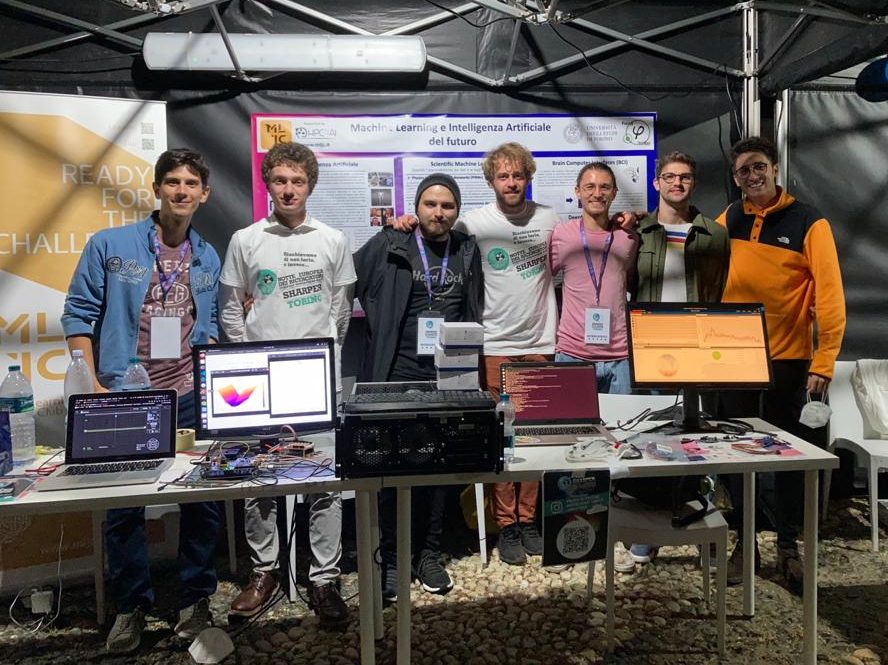
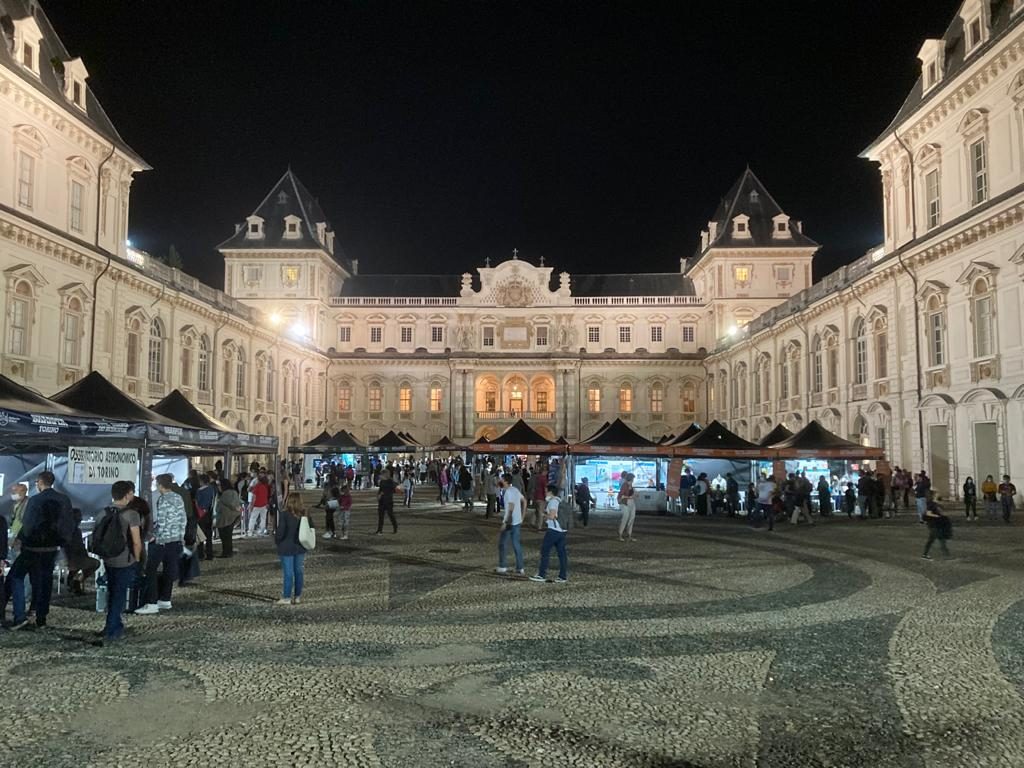
The Machine Learning Journal Club participated in the SHARPER – European Researchers’ Night in Turin on September 24th 2021, organized by the University of Turin and Politecnico of Turin, in the beautiful frame of the Castello del Valentino. The title of the stand was “MACHINE LEARNING E L’INTELLIGENZA ARTIFICIALE DEL FUTURO”. At our stand we presented projects spacing from Brain Computer Interfaces to Scientific Machine Learning.
Brain computer Interfaces
The MedicAI team showcased the new BCI hardware from OpenBCI that will allow the team to run custom experiments in order to acquire data for training, validation and testing of new advanced algorithms for EEG signal classification. These last are fundamental for critical applications, for example in allowing communication or the use of computers for people that cannot use their hands because of diseases. [Open the page]
Scientific Machine Learning
We presented an overview on our past Scientific Machine Learning projects that have the goal to create accurate and efficient models of natural phenomena by merging the knowledge coming from the physics-based approaches using differential equations and the data-driven approaches. In particular we showcased the work “Physics-Informed Machine Learning Simulator for Wildfire Propagation” and our contribution to “NeuralPDE: Automating Physics-Informed Neural Networks (PINNs) with Error Approximations” [Open the page]
Real Time Scientific Machine Learning
We presented an electronics based on a SoC with GPU acceleration , an FPGA and a large amount of inputs and outputs that allows to run machine learning algorithsm not only “offline” on dataset already saved on the hard drive, but also in real time on data coming from sensors. In this way it is possible to deploy machine learning applications where it is required by the model to trigger decisions with a very low latency (thanks to the FPGA-based neural network inference). In this project the final goal is the realization of adaptive control for dynamical systems that can merge knowledge coming from physics priors and sensor fusion. This project is still “work in progress”! [Open the page]




